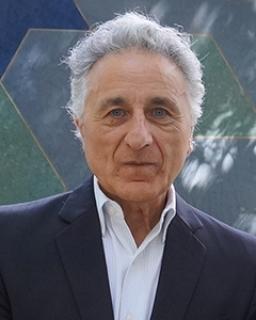
Position: Emeritus Professor of Islam and the Muslim World
School and/or Centres: Centre for Arab and Islamic Studies
Email: James.Piscatori@anu.edu.au
Researcher profile: https://researchers.anu.edu.au/researchers/piscatori-jp
Professor Piscatori is currently Deputy Director and Professor at the ANU Centre for Arab and Islamic Studies. Prior to holding this position he was Chair of the School of Government and International Affairs at Durham University, a Fellow of the Oxford Centre for Islamic Studies and Fellow of Wadham College, Oxford; and Professor of International Politics in the University of Aberystwyth. He has held professorial appointments in the Department of International Politics, the University of Wales, and the School of Advanced International Studies of the Johns Hopkins University. In addition, he has been a Research Fellow at the Royal Institute of International Affairs, London, and Senior Fellow at the Council on Foreign Relations, New York. He has also been Senior Fellow at two research institutions -- the Royal Institute of International Affairs in London and the Council on Foreign Relations in New York. He has served on several international collaborative committees such as the Committee for the Comparative Study of Muslim Societies of the Social Science Reseach Council, and was co-editor of a series on Muslim Politics for Princeton University Press.
Prof. Piscatori is the author of Islam in a World of Nation-States and co-author (with Dale F. Eickelman) of Muslim Politics. He is the editor of Islam in the Political Process and co-editor of Muslim Travellers: Pilgrimage, Migration, and the Religious Imagination. Islam, Islamists, and The Electoral Principle appeared in a series of papers for the International Institute for the Study of the Modern Muslim World in Leiden. He has also co-edited Monarchies and Nations: Globalization and Identity in the Arab States of the Gulf.
Prof. Piscatori is currently researching the development of pan-Islamic thought and movements.
Islam and international relations; and Islamic political thought, particularly as it relates to democratisation in Middle Eastern societies. His area of focus has been principally, but not exclusively, on the Arab states of the Gulf. Recently, he has been working on pan-Islamism and Islamic transnationalism, and specifically investigating the contemporary meaning of the 'ummah' (community of the faith).